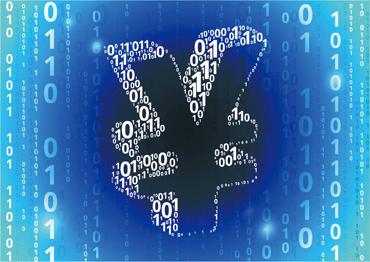The government of Suzhou, East China’s Jiangsu Province announced on December 5 that it will distribute 20 million yuan (US$2.9m) worth of Central Bank Digital Currency to a limited number of residents. This is the second trial of the digital currency launched by the People’s Bank of China (PBoC) after one in Shenzhen, South China’s Guangdong Province.
There will be a lottery to decide who gets the digital money. Registration started on December 5 and the government revealed the results on December 11. The cash is distributed in 100,000 digital envelopes containing 200 yuan (US$29) each. The money can be used in offline stores and on big e-commerce platforms such as JD.com and Pinduoduo.
The PBoC’s digital currency is different from others such as Bitcoin, as it is fiat money (backed by government decree) which no individual or organization on the Chinese mainland is allowed to refuse, the bank said. Yi Gang, president of the PBoC, said at the end of 2019 that the bank has studied digital currency for five years and intend to launch programs to replace some cash in circulation with digital currency at equal value. It will be issued in the same way as the Chinese yuan.
Analysts said that digital currency is in accord with the trend for easier and more convenient payments in the digital economy era. More importantly, it can greatly reduce the cost and raise the efficiency of macro-control and financial management, as digital currency can be monitored more easily compared to paper money.
As the first pilot city, Shenzhen distributed 10 million yuan (US$1.5m) in digital currency to 50,000 residents in early October. More than 1.9 million local residents registered for the scheme, and by October 18, 47,573 among the 50,000 picked had used the digital money in 62,788 transactions amounting to 8.8 million yuan (US$1.3m). Altogether 3,389 stores and businesses have updated and improved their transaction systems to enable payments by digital currency.
Analysts pointed out that there are still many challenges to overcome before a nationwide rollout of a digital currency, especially preventing data leaks and inflation. Some may refuse to use it because of difficulties using a smartphone or worries that it would lead to excessive government supervision. Lawmakers should work on forward-looking laws and regulations to minimize potential risks and problems, said analysts.

 Old Version
Old Version